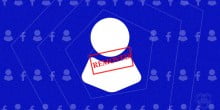Apple has responded to the Facebook Research app scandal with decisive action. Facebook was collecting data from teenagers in return for small payments, in open defiance of Apple’s official policy. Therefore, Apple has revoked the certificate that enables Facebook to distribute the app via Apple’s Enterprise Certificate Program, and bans the Research app, according to Recode.
The ‘Facebook Research’ Scandal
Facebook was using the app to watch minors browse the Internet. They were paying users including teenagers as young as 13 for their data, including access to the user’s location, their private messages, and their browsing history. Facebook seemingly needed to collect the data to create better versions of its apps and services in the future.
On Tuesday afternoon, TechCrunch broke the story of the Facebook Research app scandal. The Facebook Research app was in direct violation of Apple’s policies on data protection and privacy. Facebook got around the restriction in the App Store at first by calling itself an internal app – an option that gives companies access to users’ iPhones so they can test early versions of their product.
Apple Responding
Apple reacted to the scandal by blocking Facebook from releasing internal apps on iOS. In an emailed statement, Apple wrote:
“We designed our Enterprise Developer Program solely for the internal distribution of apps within an organization. Facebook has been using their membership to distribute a data-collecting app to consumers, which is a clear breach of their agreement with Apple.”
As a result of this ban on Facebook’s internal apps, several features will be affected. Facebook will no longer be able to test new versions of WhatsApp, Instagram, or Messenger. There would also be a total ban on internal software like the Facebook lunch menu.
In response to the scathing statements and ban by Apple, Facebook has attempted to defend its position. They want critics to focus on the fact that they explicitly called it the “Facebook Research” app and note that users knew what they were getting into. They also claim that less than five percent of the users were teenagers. Moreover, all the underage users had compulsory parental consent forms. Facebook said in their statement:
“Despite early reports, there was nothing ‘secret’ about this. It was literally called the Facebook Research App. It wasn’t ‘spying’ as all of the people who signed up to participate went through a clear on-boarding process asking for their permission and were paid to participate.”
Despite an unconvincing attempt at a defense by Facebook, the fact that the tech giant was collecting personal data in exchange for money still disturbs many users. Hunger for personal data has landed Facebook in hot water over the last few months and it’s getting worse by the day. It is truly striking that even after several scandals, Facebook would still take such a risk to fish for more data using shady practices.




Share Your Thoughts